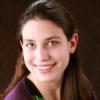news
Chem, Math Students Win Prestigious NSF PhD Fellowships
Primary tabs
Four Georgia Tech students with College of Sciences affiliation have been selected by the National Science Foundation to receive the prestigious NSF Graduate Research Fellowships.
Quinton Bruch is an undergraduate majoring in the School of Chemistry and Biochemistry. In May, he will receive the BS Biochemistry degree. To fulfill the research option of the degree, he has been doing undergraduate research since May 2013 in the lab of Jake Soper, where he has been investigating C-O bond activation of alkyl ethers for C-C bond formation via cross-coupling. He will be taking his fellowship to the University of North Carolina, Chapel Hill, to study chemical catalysis toward a PhD.
Justin Lanier is a first-year graduate student in the School of Mathematics working with Dan Margalit. His research focus is geometry and topology: he spends a lot of time thinking about the shapes and symmetries of surfaces. He addresses questions such as, what kinds of symmetries does a donut of many holes have? He tries to figure out how surfaces can be arranged in space to create interactions between different types of symmetries. This type of research has applications to other parts of pure mathematics and draws connections between abstract structures and concrete pictures of curves on surfaces.
Samantha Petti and Matthew Fahrbach are both first-year graduate students working toward a PhD in Algorithms, Combinatorics, and Optimization (ACO). This multidisciplinary program is sponsored jointly by the School of Mathematics, the College of Computing, and the H. Milton Stewart School of Industrial and Systems Engineering.
Santosh Vempala, a computer science professor and an adjunct professor in the School of Mathematics, directs Petti’s research. Petti is working on a mathematical framework to model how neurons in the brain carry out cognitive functions. Her research hopes to explain how neurons compute the functions necessary for cognition, describe neural learning mechanisms, and develop tools to understand graphical models of the brain.
Dana Randall, a computer science professor and an adjunct professor in the School of Mathematics, is Fahrbach’s advisor in the ACO program. Fahrbach is studying how random-walk algorithms using Markov chains perform when they sample from biased probability distributions. The work includes analyzing the mixing time of Markov chains, designing better algorithms, and identifying problems that could be solved by algorithmic and combinatorial tools.
The NSF Graduate Research Fellowships Program recognizes and supports outstanding graduate students in NSF-supported science, technology, engineering, and mathematics disciplines who are pursuing research-based masters and doctoral degrees in accredited US institutions, according to NSF. For the 2016 competition, NSF received close to 17,000 applications and made about 2,000 award offers.
“Recipients of NSF Graduate Research Fellowships belong to an elite group of students who demonstrate extraordinary talent in their chosen field and enormous potential for impactful research,” says College of Sciences Dean Paul M. Goldbart. “Congratulations to our students and their mentors.”
Groups
Status
- Workflow status: Published
- Created by: A. Maureen Rouhi
- Created: 04/13/2016
- Modified By: Fletcher Moore
- Modified: 10/07/2016
Categories
User Data




